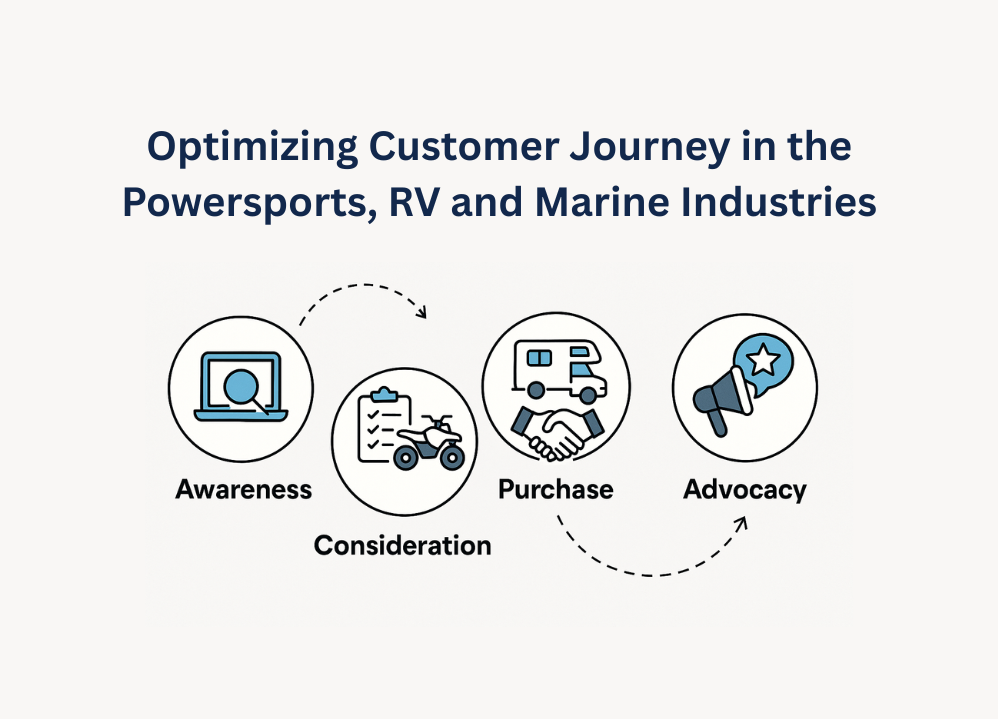In the competitive outdoor recreation market, seamless CRM integration is not just a necessity but a game-changer for OEMs and dealers in the recreation and equipment industry. Effective CRM systems streamline operations, enhance customer satisfaction, and provide actionable insights. This article delves into the technical advantages of CRM integration, focusing on lead quality, sales efficiency, and customer engagement to underscore the significant benefits it brings.
Enhancing Lead Quality Through CRM Integration
CRM integration is pivotal in significantly enhancing lead quality for OEMs and dealers. By consolidating customer data into a single, accessible platform, it creates a unified data repository that allows businesses to track customer interactions, preferences, and purchase history more effectively. This, in turn, enables sales teams to identify high-potential leads and tailor their approaches accordingly, thereby boosting sales.
Moreover, integrated CRM systems provide actionable insights through advanced analytics. These insights help businesses understand customer behavior and predict future trends. By leveraging this data, OEMs and dealers can create targeted marketing campaigns that resonate with their audience, ultimately improving lead conversion rates.
Additionally, CRM integration facilitates better communication between departments. Sales, marketing, and customer service teams can access the same customer information, ensuring a consistent and informed approach. This alignment not only improves lead quality but also enhances overall customer experience.
Boosting Sales Efficiency with Integrated CRM Systems
Seamless CRM integration streamlines sales processes by automating routine tasks. This automation reduces the time sales teams spend on manual data entry, allowing them to focus on high-value activities. For instance, automated lead scoring helps prioritize prospects, ensuring sales efforts are directed toward the most promising leads.
Furthermore, integrated CRM systems enhance sales efficiency by providing real-time access to customer information. Sales representatives can quickly retrieve customer interactions, preferences, and purchase history data. This immediate access enables more informed and personalized sales pitches, increasing the likelihood of closing deals.
Additionally, CRM integration supports better sales forecasting. By analyzing historical data and current trends, businesses can predict future sales performance more accurately. This predictive capability allows for more effective resource allocation and strategic planning, ultimately boosting overall sales efficiency.
Improving Customer Engagement via CRM Integration
CRM integration is key to enhancing customer engagement by enabling personalized communication. With access to comprehensive customer data, businesses can tailor their messages to individual preferences and behaviors, fostering a stronger connection between the brand and the customer. This increases loyalty and enhances customer satisfaction, a crucial aspect of any business.
Moreover, integrated CRM systems support targeted marketing efforts. Businesses can create highly relevant marketing campaigns by segmenting customers based on various criteria, such as purchase history, demographics, and engagement levels. These targeted efforts improve engagement rates and drive higher conversion rates.
Additionally, CRM integration facilitates timely and consistent communication. Automated workflows ensure that customers receive follow-ups, reminders, and updates immediately. This consistent interaction keeps customers engaged and informed, enhancing their overall experience with the brand.
Technical Advantages for OEMs and Dealers
CRM integration offers several technical advantages for OEMs and dealers, starting with improved data accuracy. By consolidating customer information into a single system, businesses reduce the risk of errors and inconsistencies. This accuracy ensures that all departments work with reliable data, enhancing decision-making processes.
Better inventory management is another critical benefit. Integrated CRM systems provide real-time updates on inventory levels, helping businesses maintain optimal stock levels. This capability reduces the chances of overstocking or stockouts, leading to more efficient operations and improved customer satisfaction.
CRM integration also provides enhanced reporting capabilities. Advanced analytics tools allow OEMs and dealers to generate detailed reports on various business aspects. These reports offer valuable insights into sales performance, customer behavior, and market trends, enabling more strategic planning and better resource allocation.
Overcoming Common CRM Integration Challenges
CRM integration often presents several challenges, but practical solutions can help overcome these obstacles. One common issue is data migration. Transferring data from legacy systems to a new CRM can be complex and time-consuming. Businesses should plan meticulously to address this, ensuring data is cleaned and standardized before migration.
Another challenge is user adoption. Employees may resist new systems due to unfamiliarity or perceived complexity. Providing comprehensive training and ongoing support can mitigate this resistance. Additionally, involving key stakeholders in the selection and implementation process can foster a sense of ownership and ease the transition.
System compatibility is also a frequent concern. Ensuring that the new CRM integrates seamlessly with existing software is crucial. Conducting thorough compatibility tests and working closely with CRM vendors can prevent integration issues. By addressing these challenges proactively, OEMs and dealers can achieve a smooth and successful CRM integration.
The Future of CRM Integration in the Recreation and Equipment Industry
Seamless CRM integration is essential for OEMs and dealers in the recreation and equipment industry. It enhances lead quality, boosts sales efficiency, improves customer engagement, and empowers you to plan strategically for the future. The technical advantages, such as better data accuracy and enhanced reporting, enable you to make informed decisions. Overcoming common challenges like data migration and user adoption is crucial for successful implementation, but strategic planning will set you apart in the industry.
Looking ahead, advancements in CRM technology, including AI-driven analytics and enhanced automation, promise even more significant benefits. Embracing these innovations will further streamline operations and elevate customer experiences, solidifying the importance of CRM integration in the industry.
Visit Rollick for more information on maximizing growth and efficiency with strategic dealer partnerships.




